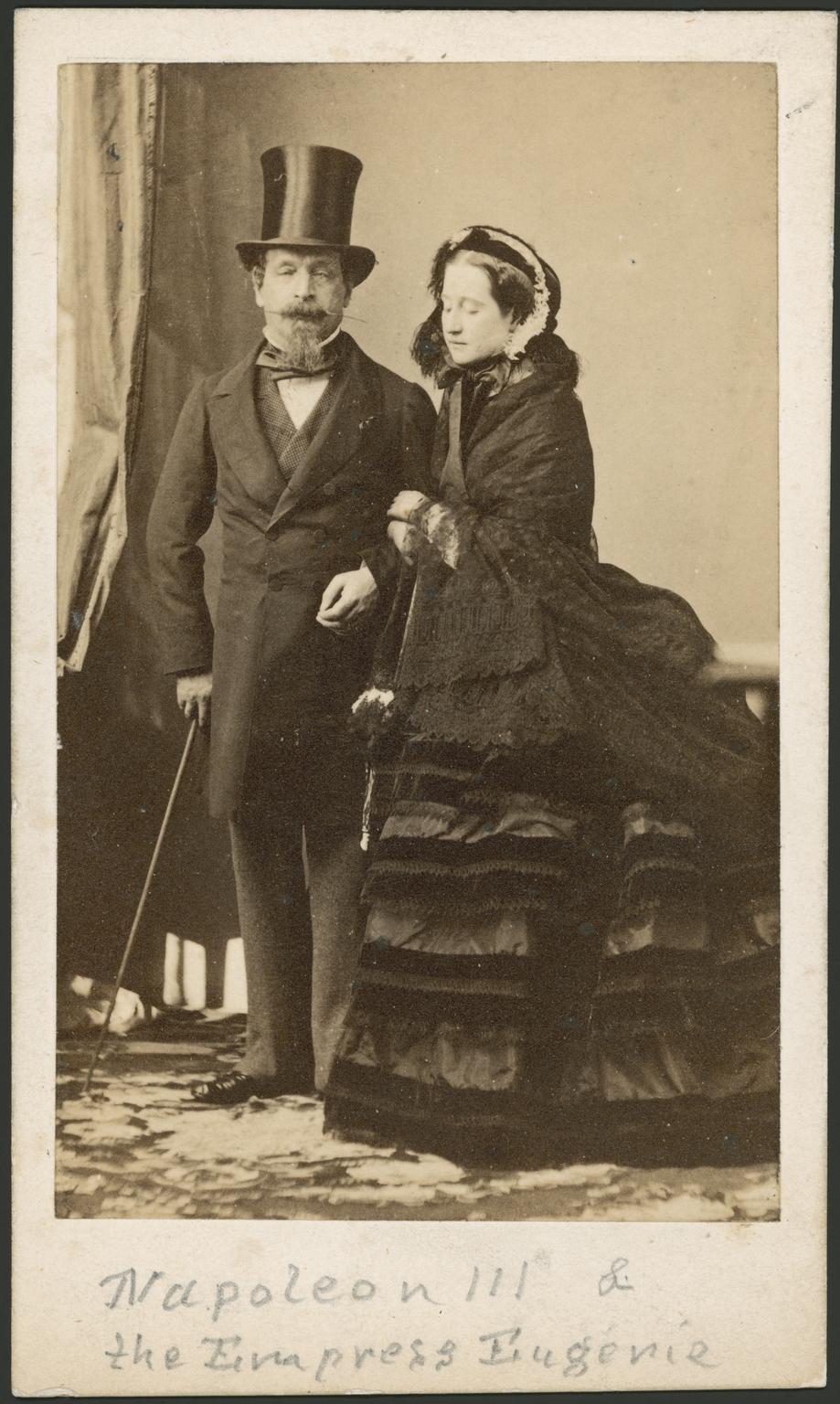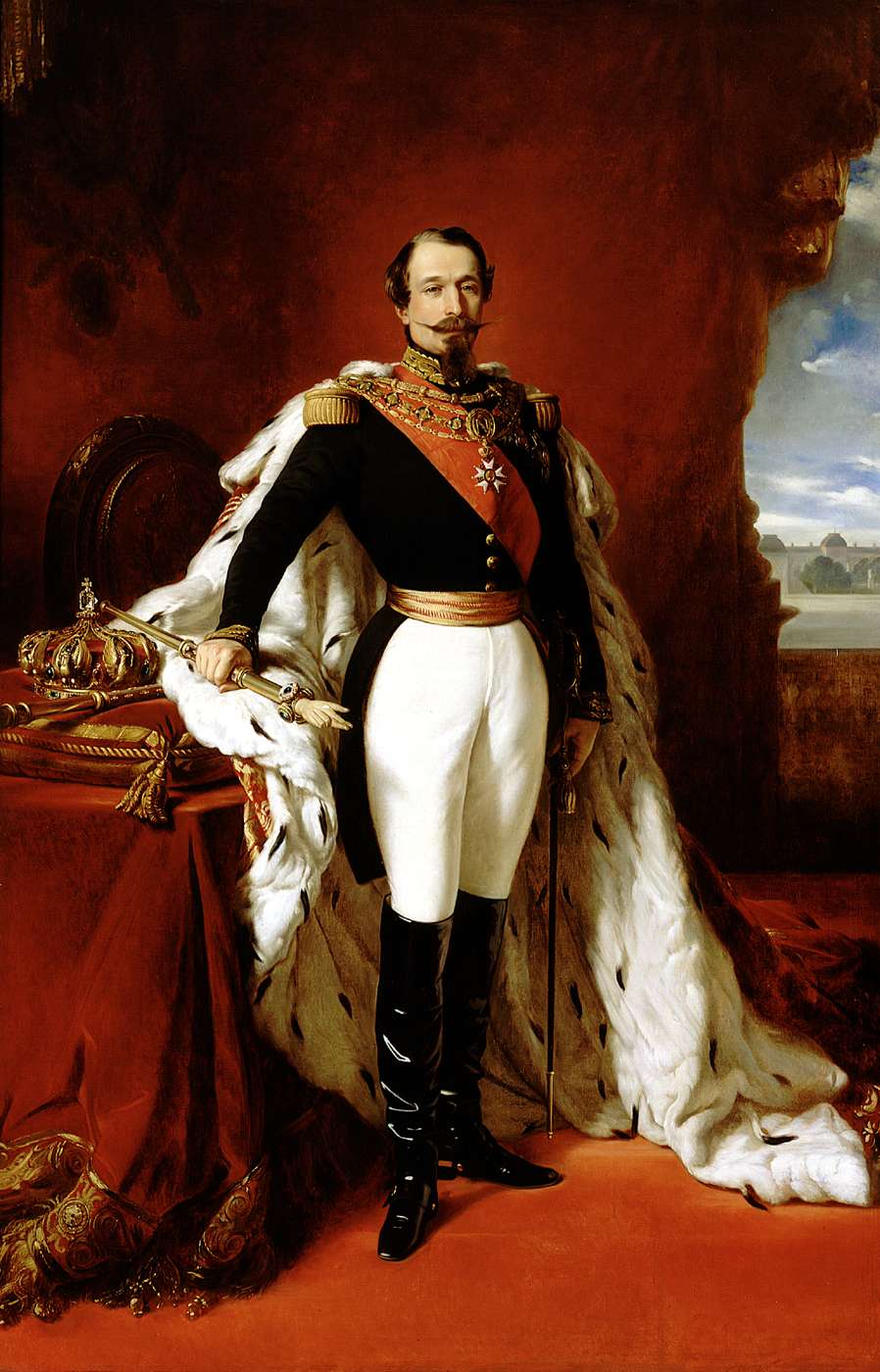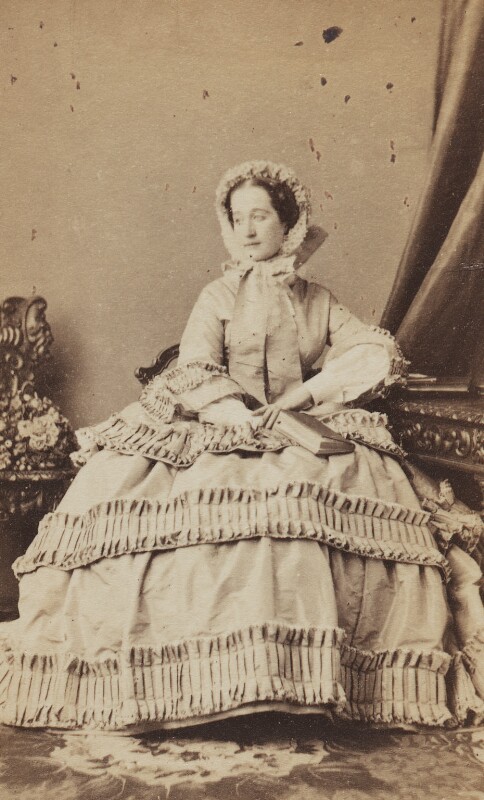Napoleon III and Eugénie
1808-1873

Napoleon III and Eugénie (Science museum group)
The first elected President of France, reigning between 1852 and the defeat of the French at the end of the Franco-Prussian War of 1870. His father was the younger brother of Napoleon Bonaparte.
Napoleon III modernised the French economy and rebuilt the centre of Paris to what we would recognise today. His reign also saw an expansion of construction projects in many French cities including the railway system and he established trade agreements with many European countries, including Britain.
On the outbreak of the Crimean War 1853-6 France was allied to Britain and the Ottoman Empire against the Russians and helped to defeat them. 30,000 French troops and 20,000 British lay
1870, The Kingdom of Prussia
Napoleon and Eugénie visited Queen Victoria and Albert at Windsor Castle in April 1855 and they toured the Crystal Palace. She and Albert made a reciprocal visit to Versailles in August the same year.
The French couple came to Osborne House between the 6th and 10th August 1857, with a large entourage of staff who

Portrait of Napoleon III by Winterhalter (Wikipedia)

Empress Eugénie 1858. (Wikipedia)
Downhill to next
Uphill to next
Funded by the
